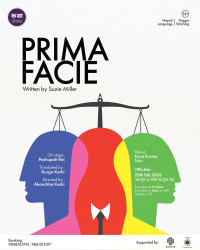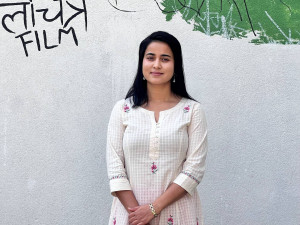Culture & Lifestyle
Publication Nepalaya to host book fair
The two-day event begins this Saturday at the publication’s office in Kalikasthan.
Post Report
Publication Nepalaya is organising a book fair with special discounts to celebrate its 20th anniversary. The publisher has announced discounts of up to 60 percent on its books. The two-day fair will take place on Saturday and Sunday, May 10 and 11, at the publication’s office in Kalikasthan. The event will also feature meet-and-greet sessions with authors and book signings.
“Our first book, ‘Palpasa Café’, received much love from readers,” said Saijan Maskey, CEO of Publication Nepalaya. “In honour of 20 years of support, we are preparing to give readers a pleasant experience by organising the fair at our own office in Kalikasthan.”
Maskey said that more than 30 authors from Nepalaya will be present at the event. “Our authors Achyut Krishna Kharel, Aruna Uprety, Ani Choying Drolma, Abhash, Kali Prasad Rijal, Kishore Thapa, Kumar Nagarkoti, Ganesh Prasad Lath, Girish Giri, Jeevan Kumar Prasai, JB Darlami, Durga Karki, Narayan Wagle, Viplob Pratik, Shrawan Mukarung, among others, will attend,” she said.
The fair will begin with the launch of Jeevan Kumar Prasai’s fifth book, ‘Kasto Chha Timilai, Yo Man Sodhirahanchha’ on Saturday at 9 am at the venue. Prasai’s new book focuses on emotional intelligence. “This is the era of AI, but I am focusing on EI—emotional intelligence,” said Prasai.
On New Year’s Day 2025, Nepalaya had invited young writers to submit stories, poems, and essays under the title, ‘25 by 25 in 2025’. “We have received many submissions. Since young writers often have many questions about the process of writing and publishing books, we will also try to answer those questions during the fair,” said editor Bimal Acharya.
Acharya feels that book fairs should be held regularly on the streets, alleys, corners, and shops of the capital. He recalls buying cheap books on the streets when he first came to Kathmandu. “I don’t know what happened, but all those people selling and spreading books and magazines suddenly disappeared,” he said. “Even if devotees don’t come, the priest must open the temple. Similarly, even if readers don’t come, the temples of knowledge must not be closed.”




 15.12°C Kathmandu
15.12°C Kathmandu














